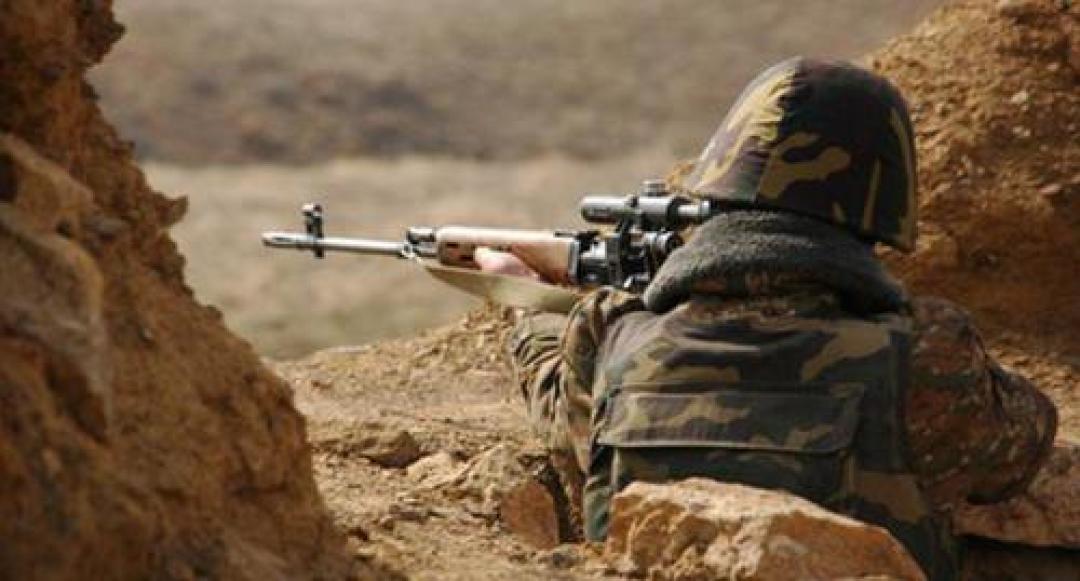
Deadly Border Clash Between Armenia and Azerbaijan Sparks International Alarm

Four Armenian soldiers were killed, and another was wounded as their positions along Armenia's border with Azerbaijan were subjected to cross-border fire early on Tuesday. The deadly incident was preceded by the wounding of an Azerbaijani border guard by an Armenian sniper in the direction of the Zangilan region of Azerbaijan.
According to Armenia’s Defense Ministry, the outposts surrounding the border village of Nerkin Hand in southeastern Syunik province were under fire for four hours. The gunfire ceased at 9:30 a.m., as stated in the ministry’s statement.
The Armenian Foreign Ministry strongly condemned the “provocation” by Azerbaijan, stating that Baku is actively seeking pretexts to escalate tensions along the Armenian-Azerbaijani border. Furthermore, Armenia accused Azerbaijan of attempting to undermine international efforts aimed at initiating negotiations for a peace treaty between the two South Caucasus nations.
Dmitry Peskov, the press secretary of the Russian president, expressed concern about the situation along the line of contact. He urged both sides to exercise restraint and avoid actions that could be seen as provocative by the other side.
Referring to the border incident, Maria Zakharova, the official representative of the Russian Ministry of Foreign Affairs, stated in a press briefing: “We strongly call on Baku and Yerevan to exercise restraint, take steps for de-escalation, and avoid any action that is fraught with further deterioration of the situation. All problems that have emerged should be solved exclusively by peaceful, political, and diplomatic means. What happened once again confirms the need for an early return of Azerbaijan and Armenia to the implementation of the tripartite agreements, which were signed in 2020-2022, at the highest level. We are convinced that territorial disputes should be resolved within the framework of bilateral commissions for the delimitation of the Armenian-Azerbaijani border. We are ready to provide advisory support to this process.”
Marija Pejčinović Burić, Secretary General of the Council of Europe, also expressed concern about the reports of exchange of fire along the Armenia-Azerbaijan border. “Call on both sides to abstain from the use of force. Dialogue is the only way to lasting peace,” Buric added on X.
State Department spokesperson Matthew Miller told a press briefing: “We are concerned by the reports of deadly military-to-military clashes which resulted in several casualties. We offer our heartfelt condolences to the families of those killed and injured. The use of force undermines negotiations. The only way to a sustainable peace is at the negotiating table. Any ceasefire violations should be investigated and properly addressed. As the Secretary continually emphasizes, the United States is committed to Armenia-Azerbaijan peace negotiations”.
During the joint press conference with Armenian FM Ararat Mirzoyan within the fifth meeting of the EU-Armenia Partnership Council, Josep Borrell, the Vice President of the European Commission, and the High Representative of the European Union (EU) for Foreign Affairs and Security Policy expressed his concern over the situation. He stated that the “Armenian shooting of Azerbaijani soldiers yesterday was deplorable, but the Azerbaijani response today seems to be disproportionate.”
The Azerbaijani Foreign Ministry criticized Borrell's stance, characterizing it as a justification of Armenia's military aggression while disregarding the provocation initiated by the Armenian side. Azerbaijan highlighted the incident involving the wounding of an Azerbaijani serviceman by sniper fire, emphasizing that it occurred without any provocation, following a period of stability lasting five months.
CSTO Highlights Armenian-Azerbaijani Border Tensions as Major Conflict Risk
Andrey Serdyukov, Chief of the Collective Security Treaty Organization’s Joint Staff, stated in a press briefing that the CSTO views the potential of the Armenian-Azerbaijani border as highly conflictive. He emphasized that a peace treaty would be necessary for a lasting settlement of the situation in the region.
“[There are] attempts by individual countries to strengthen their positions in the South Caucasus, to gain access to the resources of the Caspian [Sea], and to ensure direct access for themselves to Central Asia," Serdyukov said. "For that, the highly conflictive potential of the Armenian-Azerbaijani border is being actively used. The conclusion of the peace agreement maintains an important meaning for the future settlement of the situation,” he outlined.
Andrey Serdyukov highlighted that despite Armenia’s membership in the CSTO, external actors, particularly from the West, persist attempting to influence the post-conflict settlement format between Azerbaijan and Armenia.
See Also


Mirzoyan Meets US Deputy Assistant Secretary Joshua Huck

Azerbaijani President Holds Talks with UAE and German Business Delegations on Economic Cooperation

Grigoryan Confirms Armenia’s Readiness to Dissolve OSCE Minsk Group Upon Peace Treaty Signing

Azerbaijani Official Warns of Ecological Risks to Caspian Sea, Similar to Lake Urmia and Aral Sea

